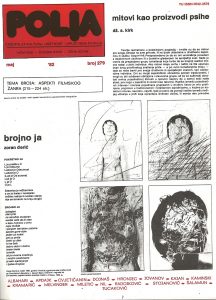
MITOVI KAO PROIZVODI PSIHE
Teorije razmatrane u poslednjem poglavlju - tvrdile su da se mitovi pre svega odnose na svet prirode, ili na ljude uključene u društvenu zajednicu ili službu bogovima.
More...We kindly inform you that, as long as the subject affiliation of our 300.000+ articles is in progress, you might get unsufficient or no results on your third level or second level search. In this case, please broaden your search criteria.

Teorije razmatrane u poslednjem poglavlju - tvrdile su da se mitovi pre svega odnose na svet prirode, ili na ljude uključene u društvenu zajednicu ili službu bogovima.
More...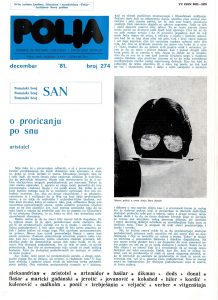
S nekoliko drugih viših sisara, čovek deli čudnu privilegiju građanstva u dva sveta.
More...
1. Srodno Disu, samo mnogo samosvjesnije i uvjerljivije, i indijski mudraci san smatraju tek smetnjom i preprekom pune budnosti, trijeznosti i rashlađenosti, koja im je ideal. San kao patološku pojavu, a ne zdravo spavanje.
More...
Među narodima srednjeg i bliskog istoka od davnina je pridavan poseban značaj snu i viđenjima koja se u njemu pojavljuju. U ponečem su se prema snovima narodi starine odnosili jednako, a po nečemu su na različite načine objašnjavali poreklo ove duboko ljudske pojave, tokom koje se čoveku priviđaju razni predmeti, živi i umrli rođaci i poznanici s kojima snevač nekada vodi izravni razgovor, kraći ili duži doživljaji, od jednostavnih svakodnevnih preko jasno putenih do sasvim nejasnih i nerazrešivih.
More...
Pristupiti snovima s aspekta tradicionalne kulture, u kojoj se ispoljava magijska moć snova, pretpostavlja diferenciranje predmeta razmatranja na oblast u kojoj se snovi dovode u neposrednu vezu sa životnom praksom i na sferu u kojoj se transponovanii mehanizam sna može prepoznati u raznovrsnim oblicima tradicionalne kulture.
More...
Shema simbolizacije je zakon kulture — i sve čovekove duhovne delatnosti. Delovanje tog zakona, međutim, nigde se ne pokazuje, ni u kulturi.
More...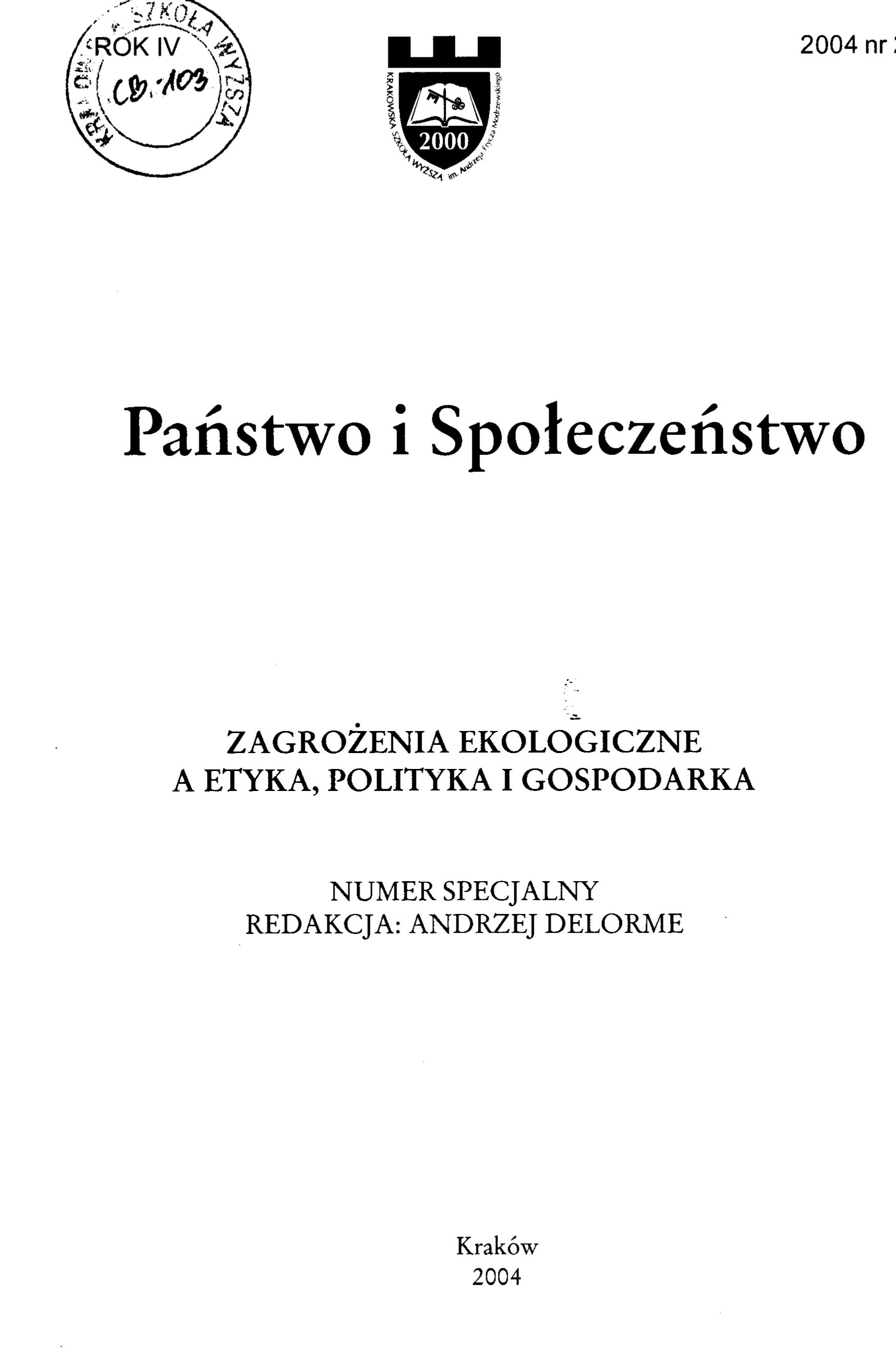

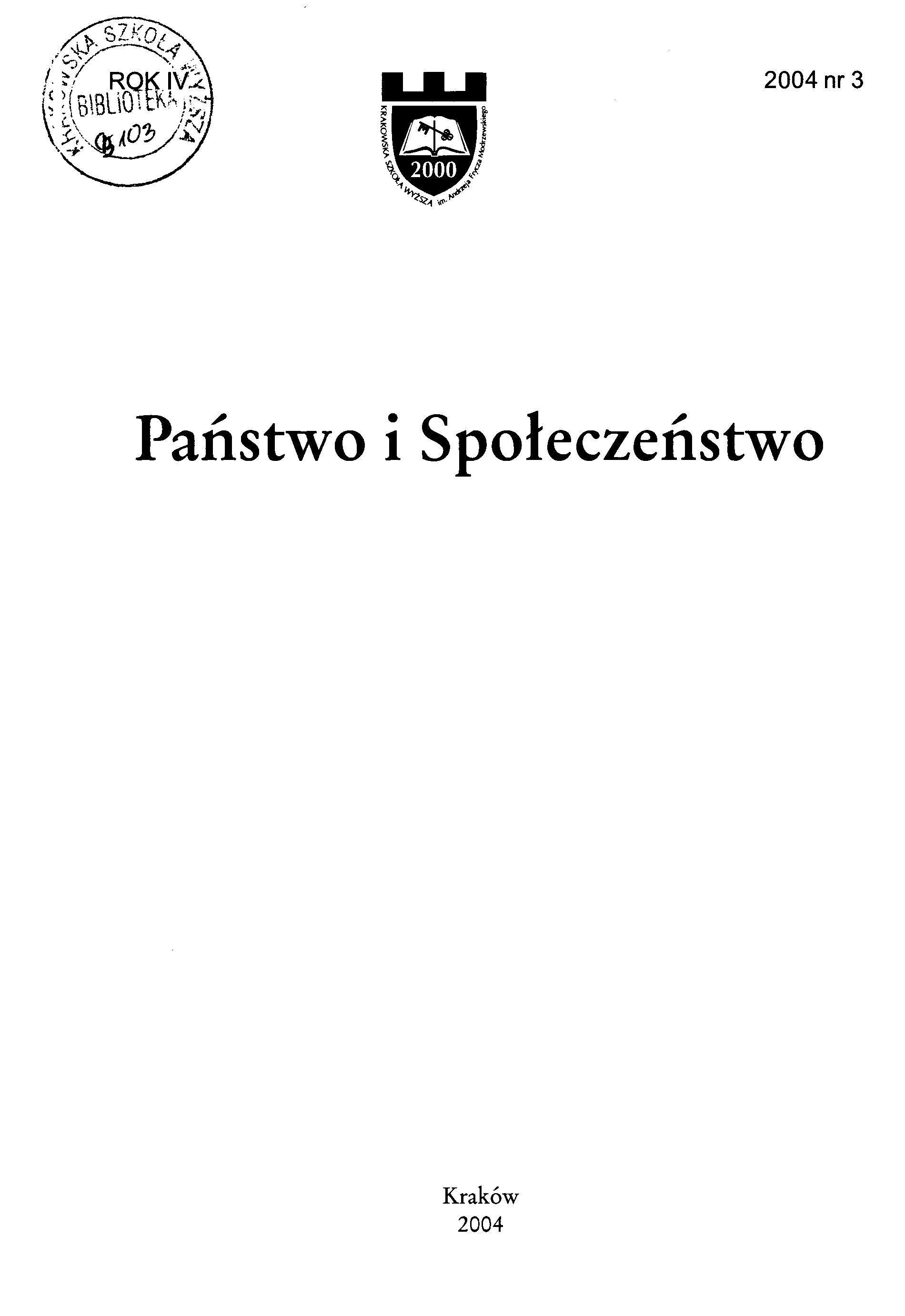
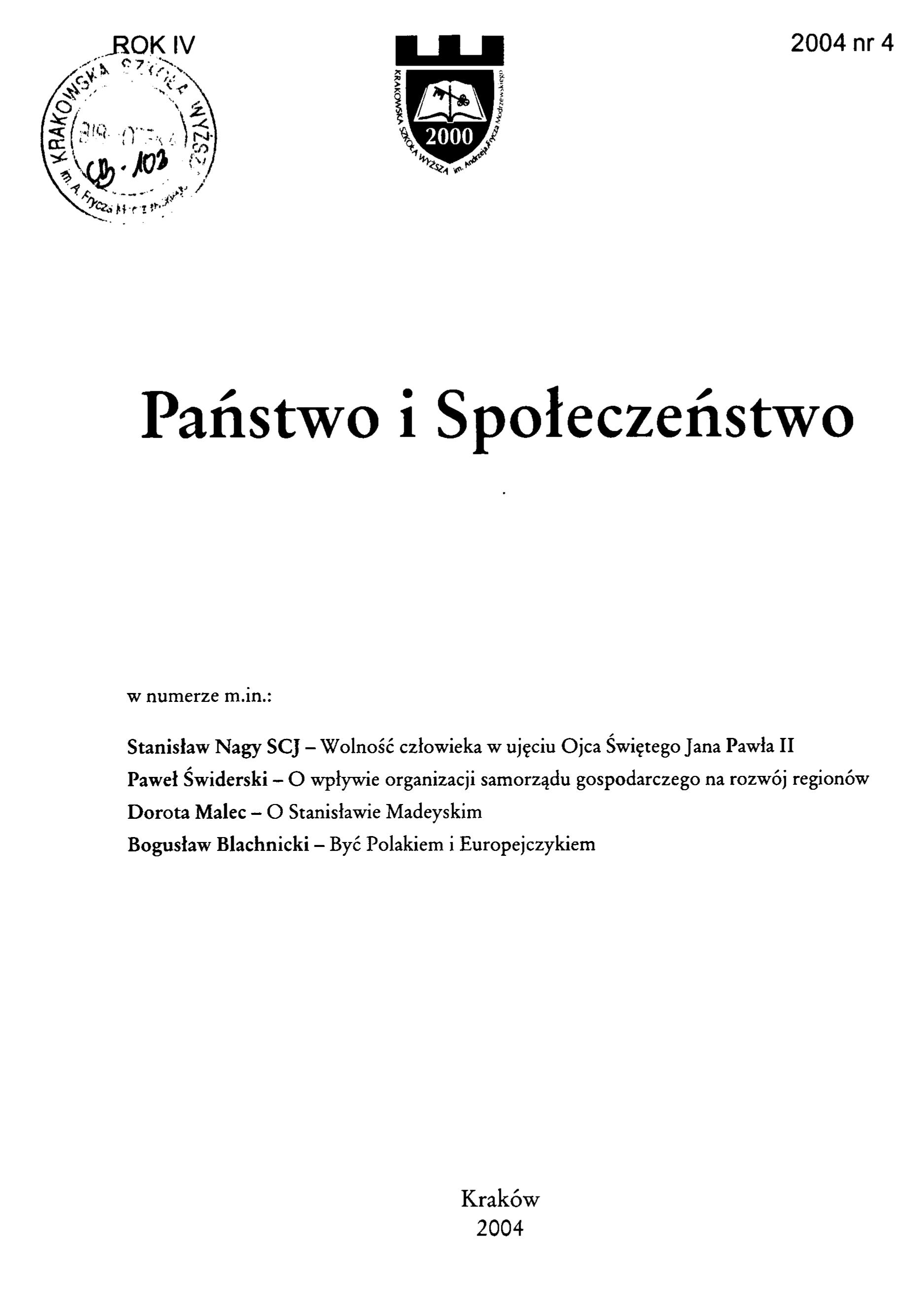
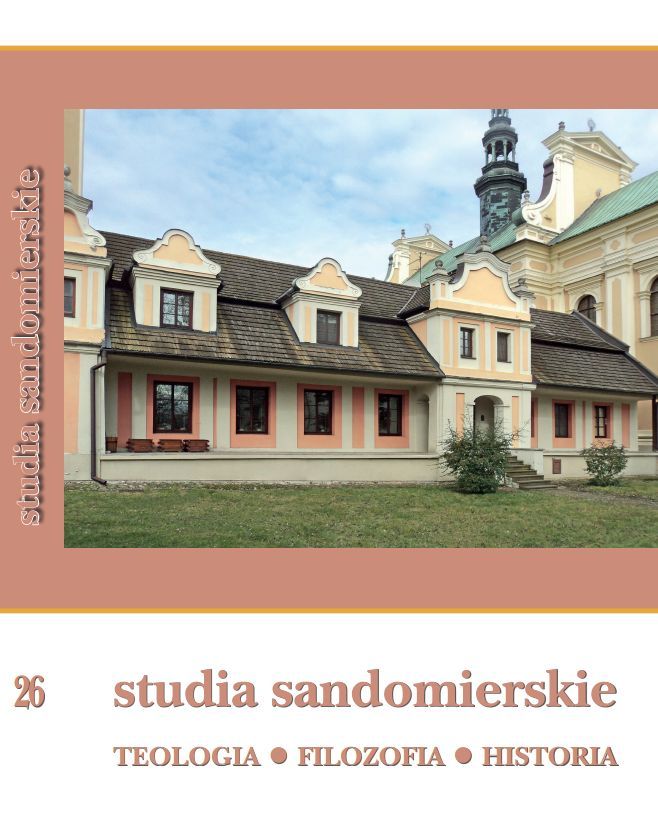
Bibliografia obejmuje publikacje księży diecezji sandomierskiej za lata 2017- 2018. Jest ona kontynuacją poprzednich zestawień drukowanych na łamach „Studiów Sandomierskich”. Obejmuje działy: I. Książki, II. A. Redakcja książek, II. B. Redakcja czasopism, III. A. Artykuły naukowe, III. B. Publikacje źródeł, III. C. Hasła w słownikach, III. D. Recenzje, III. E. Zestawy bibliografii, III. F. Sprawozdania, wstępy w pracach zbiorowych, IV. A. Artykuły popularnonaukowe, IV. B. Materiały duszpasterskie, V. Inne.
More...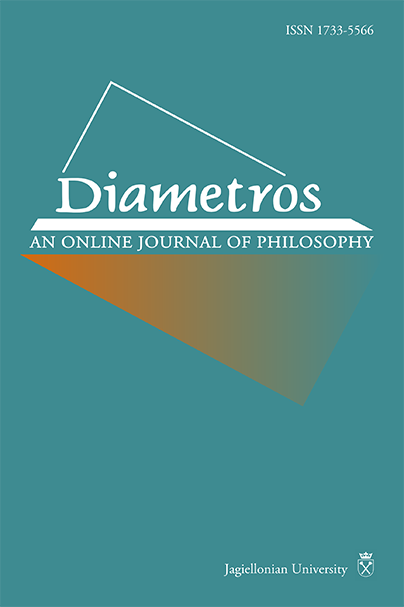
The paper intends to initiate a discussion on the politico-liberal concept of judgment. It is argued that whilst political liberalism (PL) – presented as an account of political objectivity – already appeals to judgment, this conception is an unsatisfactory one. This critical assessment is supported by the juxtaposition of PL with an Arendtian understanding of political objectivity which offers a more robust account of judgment. In the conclusion, the possibility of applying the Arendtian solution to PL is outlined.
More...
The author presents his own interpretation of the phenomenological puzzle of the “in itself” of a real object and the world itself. The solution to this puzzle is of decisive importance for a proper understanding of transcendental phenomenology. According to Husserl, a transcendent object is “in itself” with reference to factual experience because its esse does not resolve itself into its percipi and it can exist even if it is not in fact experienced. However, the “in itself” of a real object does not mean its existence outside of all possible modes of givenness in consciousness, but is rather an ideal unity given in the infinite multiplicity of actual and possible appearances of the same determinable X. All real objects are units of sense, but sense does not penetrate the object in an infinite number of its manifestations. As a consequence, the inexhaustible X as a bearer of the identity of an object contains a surplus which goes beyond the sense. The main thesis of the paper is that the “in itself” of a transcendent object and the world corresponds with the pure X and its surplus exceeds the noematic senses.
More...
In the article I discuss three types of medical professionalism: traditional, renewed and complex. I also discuss cultural, economic and axiological factors that influence their development. I advance the thesis that complex professionalism is of no avail in the moral education of students and physicians, due to its complicated nature and the arbitrary manner of the specification of its components. In the second, part I reconstruct and present some of the advantages and drawbacks to both traditional and renewed professionalism. I attempt to justify the view that the greatest advantage of professionalism lies in its moral ambivalence. A professional physician should be aware of the advantages and disadvantages of professionalism and should be able to properly weigh them under the given circumstances – they should seek Aristotle’s golden mean. In the final part of the article I argue for a moderately optimistic belief regarding the utility of traditional and renewed professionalism in the moral development of medical students and young doctors.
More...
The idea of an eternal and immortal life like the one we lead now seems quite appealing because (i) it will be sufficiently like our own earth-bound life and (ii) we will have the same kinds of desires we have now to want to live an eternal life. This paper will challenge the view that we have a conception of what the conscious experience of an immortal is like, regardless of whether we might want to live it. Given that for us to conceive of an immortal life we must project onto it our own view of what it is like to live our own life and given that an immortal life may not be anything like the life we live, we cannot conceive of what it is like to be immortal.
More...
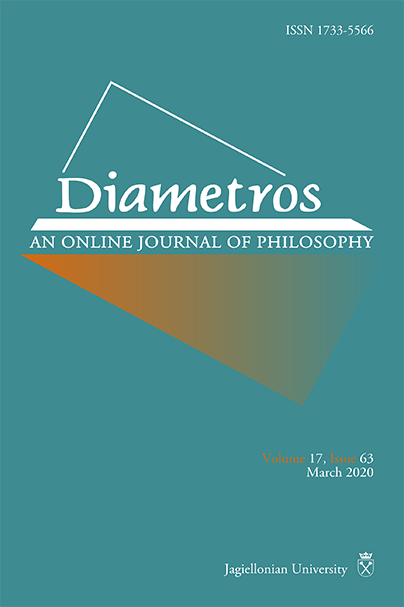
A proposal for the neurobiological recalibration of ethics termed as neuroethics has been presented by Patricia S. Churchland. Churchland claims that the more we understand the details of regulatory systems in the brain, the more we are convinced that our moral standards and practices reside in neurobiology. The term "neuroethics" has been used since 2002 to describe a new subdiscipline of ethics. Neuroethics has two main branches: the first, and most fundamental, is concerned with the moral problems related to the application of neuroscientific discoveries, the other, the neuroscience of ethics, refers to the impact of neuroscientific knowledge on our understanding of ethics. This article discuss the unique character of this new discipline and seeks to show that, while neurobiology affects our actions, it does not determine their moral dimension.
More...
The standard account of elsewhere is that it is any place that isn’t here. In this paper I argue against this account by demonstrating that (given some plausible assumptions) it results in a contra-diction. In its place I offer a modified account of elsewhere; where a place can only be elsewhere if it is in the same type of space as here.
More...
The aim of the article is to answer how one can be a constructivist and treat science as one of the greatest achievements of contemporary societies at the same time. Since constructivism is a broad trend with many variations, the author focuses only on two of its members: Richard Rorty and Bruno Latour. He tries to show that, ,one can give a coherent answer to the question by combining selected aspects of their views. Although both Rorty and Latour reject a realistic account of science, they claim that science is an effective way of dealing with the world or, to use Latour’s term, with nonhumans. It is the pragmatic category of “dealing with reality”, rather than the philosophical ideas of representation or correspondence, that explains the high status of science. Both thinkers emphasize that the effective interactions with nonhumans are a consequence of the specific culture of cooperation and supervision which is typical of science.
More...
The main purpose of the paper is to present a new framework of meta-ethics which I call the Functional Model of Analysis. It presupposes that the most important meta-ethical question is not “What is the meaning of normative words, sentences and what is the ontological fabric of the moral world?” but “What should morality and ethics be for?”. It is a form of meta-ethics that focuses on finding theoretical resources that can be helpful in understanding ongoing ethical debates between disciples of Aristotle, Epicurus, the Stoics, Augustine, Hobbes, utilitarians and Kant, and in building normative ethical theories that can help us to answer normative questions. As an example of such output I will present a formal sketch of Hybrid Function Consequentialism – a normative ethical theory based upon the meta-ethical framework proposed here.
More...